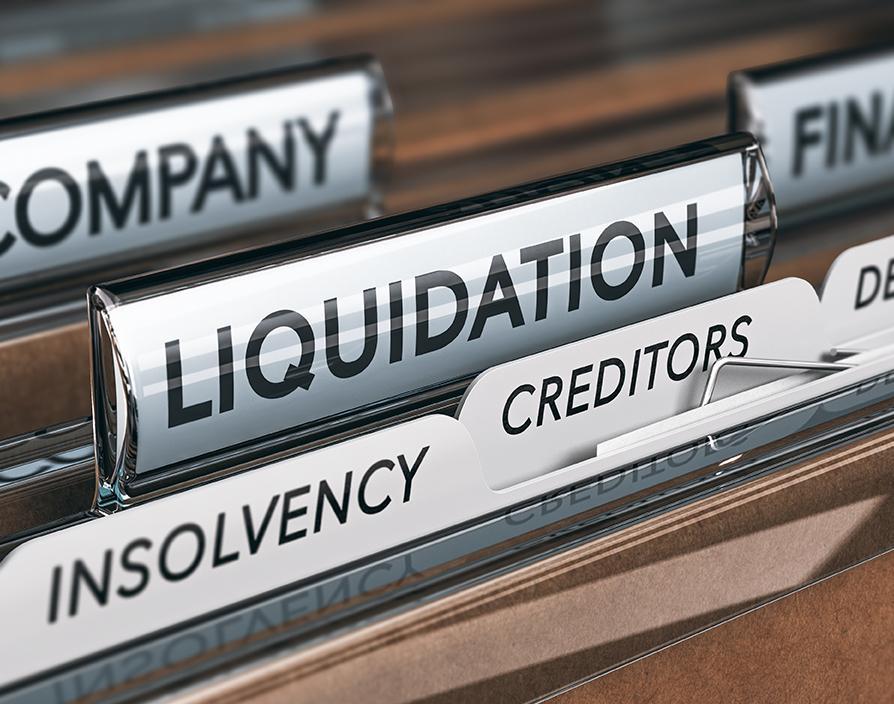The Ultimate Guide To Insolvency Practitioner
The Ultimate Guide To Insolvency Practitioner
Blog Article
Excitement About Insolvency Practitioner
Table of ContentsWhat Does Insolvency Practitioner Do?More About Insolvency PractitionerInsolvency Practitioner Fundamentals ExplainedInsolvency Practitioner Can Be Fun For EveryoneSome Known Details About Insolvency Practitioner 10 Simple Techniques For Insolvency Practitioner6 Easy Facts About Insolvency Practitioner Explained
Insurance coverage is kept track of and controlled by state insurance policy departments, and among their key goals is shielding policyholders from the danger of a business in economic distress. When a company gets in a period of economic trouble and is not able to fulfill its obligations, the insurance coverage commissioner in the company's home state initiates a processdictated by the laws of the statewhereby efforts are made to assist the firm reclaim its monetary footing.If it is established that the firm can not be fixed up, the business is stated financially troubled, and the commissioner will certainly ask the state court to get the liquidation of the firm. [Back] The insurance commissioner, either designated by the governor or elected, heads the state insurance policy department and screens and controls insurance coverage activity within the state.
[Back] By acquiring control of a company, the commissioner (or the insurance policy division) is, by legislation, the rehabilitator or liquidator of the business. In this capability, the commissioner or division takes control of the business's operations. Rather than do so directly, the commissioner may keep a special replacement receiver to manage the firm's tasks - Insolvency Practitioner.
The 20-Second Trick For Insolvency Practitioner
The receiver manages an accountancy of the company's possessions and responsibilities and provides the estate of the firm. In doing so, the receiver looks for to take full advantage of the company's possessions, move them to cash, and afterwards disperse that cash to lenders having legitimate cases versus the insurance company based on repayment priorities defined by state law (in all states, insurance policy holders are priority plaintiffs whose cases are paid prior to those of basic financial institutions).
All insurer (with restricted exemptions) certified to market life or health insurance or annuities in a state must be participants of that state's warranty organization. The guaranty organization accepts the commissioner and the receiver in pre-liquidation planning. As soon as the liquidation is purchased, the guaranty organization offers protection to the company's insurance holders who are state residents (up to the levels specified by state lawssee below; any type of advantage amounts over the guaranty asociation advantage levels come to be claims against the firm's staying properties).
The Facts About Insolvency Practitioner Uncovered
The above protection degrees use independently for each and every financially troubled insurance company. [Back] When an insurer stops working and there is a deficiency of funds required to meet the responsibilities to insurance holders, state warranty organizations are turned on. Warranty organizations have 2 primary sources of financing when providing insurance coverage to insurance policy holders. First, warranty organizations have subrogation legal rights to an in proportion share of the possessions remaining in the failed insurer.
Second, insurance providers doing business in that state are assessed a share of the quantity called for to meet the portion of the guaranty organizations' covered cases not otherwise funded with estate possessions. The amount insurers are analyzed is based on the quantity of costs that they collect in that state. [Back] The National Company of Life and Health Insurance Coverage Warranty Organizations (NOLHGA) is made up of the life and medical insurance guaranty associations of all 50 states and the Area of Columbia.
NOLHGA develops a job force of representative guaranty associations to function with the insurance commissioner to develop a plan to secure policyholders. For more details on NOLHGA's duty while doing so, see "What Is NOLHGA?" and "The Safeguard at the workplace." [Back]
Some Known Details About Insolvency Practitioner

Predictive defense by assisting you choose the ideal clients and the appropriate markets to avoid bad financial obligation to begin with, many thanks to severe financial analysis. try this web-site Extensive market intelligence, providing you with 360-degree visibility on service sectors and putting in jeopardy difficulties. It would be a simplification to believe a trade credit scores insurance policy begins and ends with premiums and pay-outs.

The Main Principles Of Insolvency Practitioner
It can result in task losses, possession sales, and also personal bankruptcy. It is very important to recognize exactly how business insolvency jobs and exactly how it can affect your business. Why does a company become part of bankruptcy? There are a variety of reasons a business may become part of bankruptcy. One of the most common reason is that the company is incapable to pay its financial obligations as they fall due.
Various other reasons for insolvency consist of fraudulence, mismanagement, and unanticipated prices. Insolvency can also lead to work losses and the closure of services.
Insolvency Practitioner - The Facts
This can have serious ramifications for the business, its stakeholders, financial institutions and the economic climate. The firm might be forced to market properties, gave up staff or also shut down. This can have a knock-on impact on the neighborhood neighborhood and the economic climate overall. Lenders might be omitted of pocket and the company's investors may see their financial investment vanish.
This can take place for a number of reasons, consisting of poor economic administration, unanticipated costs, or a change in the market. If a business is financially troubled, it may be required to shut down or sell off possessions to pay lenders. This can have a significant impact on business, employees, and investors.
It can result in task losses, possession sales, and even bankruptcy. It is essential to recognize just how company bankruptcy jobs and just how it can affect your business. Why does a business participate in bankruptcy? There are a variety of factors why a company might have a peek here become part of bankruptcy. One of the most typical factor is that the business is not able to pay its financial debts as they fall due.
Insolvency Practitioner Can Be Fun For Anyone
Various other factors for insolvency consist of fraud, mismanagement, and unexpected prices. Bankruptcy can also lead to task losses and the closure of organizations.
The business may be required to market assets, lay off team or even shut down. Creditors may be left out of pocket and the firm's shareholders might see their financial investment disappear.
Report this page